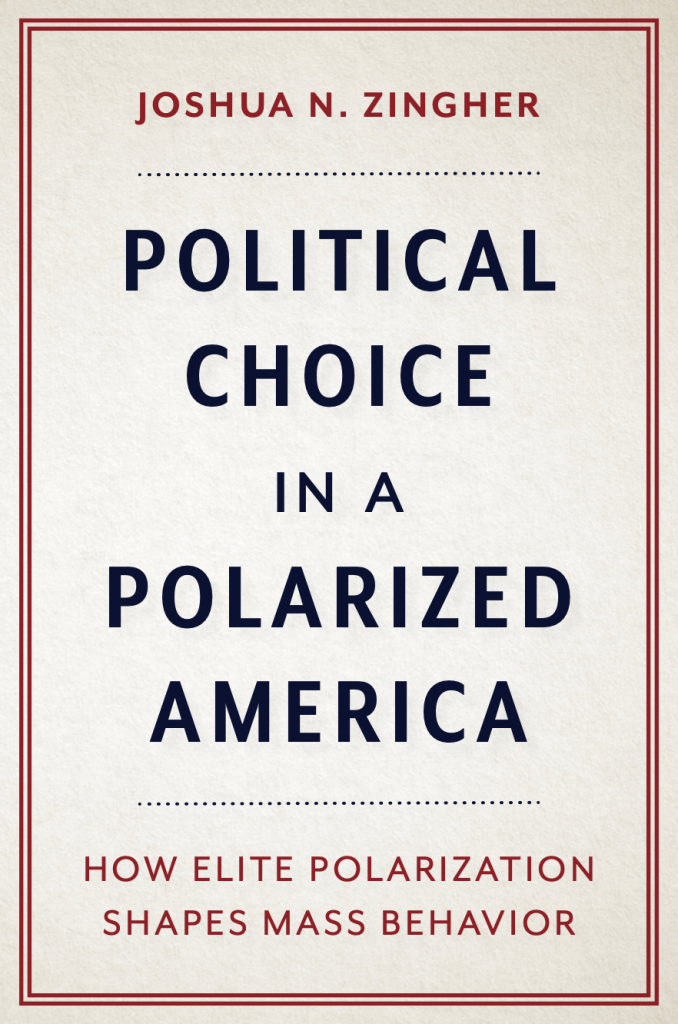About me
I am interested in empirical theories of politics. My research focuses on the relationships between voters, political parties, and elections. I am especially interested in the politics of race and class, as well as understanding how effectively groups are represented in the halls of government. My work seeks to understand how social divisions structure the political process, all the way from influencing individual-level voting behavior to the shaping election outcomes in the aggregate.
My 2022 book Political Choice in a Polarized America examines the interplay between policy attitudes and partisanship in the United States. I argue that increasing elite polarization has sharpened the ideological contrasts between the parties and led individuals to lean on their policy attitudes more heavily. I am currently working on a followup book that examines how demographic changes alter both the American party system and individual level voting behavior. Look for this book sometime in 2025.
As a scholar, I ground my thinking in what I consider core empirical concepts, such as the normal vote, the translation of votes into seats, and estimates of partisan equilibrium in electoral systems. I aim to test hypotheses derived from theory with statistical techniques. I am particularly interested in the concept of measurement and I utilize several different measurement models in my research with the goal of uncovering the latent ideological dimensions that structure the electorate’s political orientations. Replication data for my published papers is available via my Harvard Dataverse repository.
Before starting at ODU, I served as a post-doctoral fellow at the Institute for the American Constitutional Heritage at the University of Oklahoma during the 2014-2015 academic year.
If you find any of my work interesting or would just like to chat don’t hesitate to drop me a line at jzingher@odu.edu.



Recent Comments